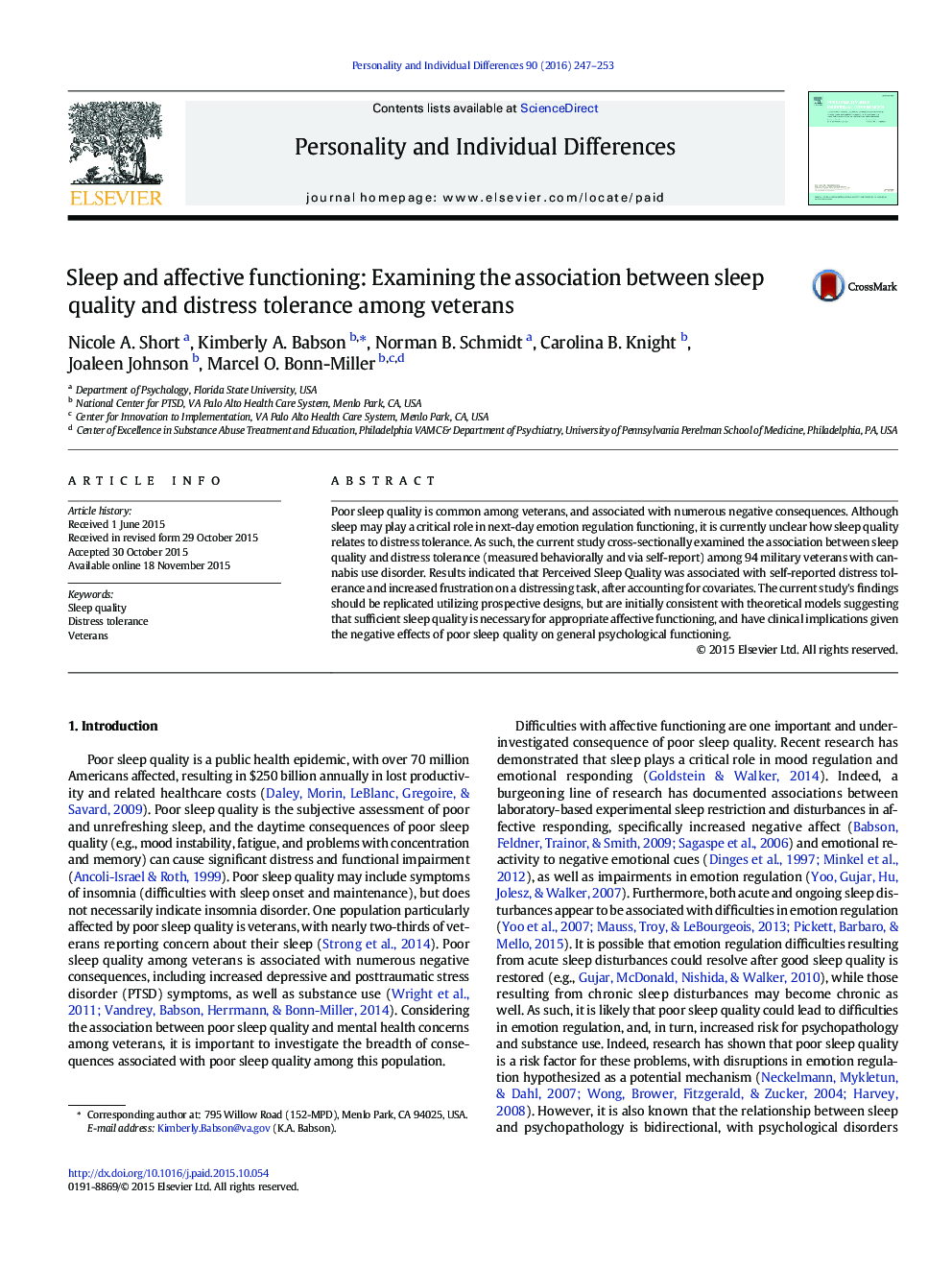| Article ID | Journal | Published Year | Pages | File Type |
|---|---|---|---|---|
| 889854 | Personality and Individual Differences | 2016 | 7 Pages |
•Poor sleep quality is associated with low self-reported distress tolerance.•Sleep quality is also associated with frustration on a distressing task.•Sleep efficiency and duration are not associated with distress tolerance.
Poor sleep quality is common among veterans, and associated with numerous negative consequences. Although sleep may play a critical role in next-day emotion regulation functioning, it is currently unclear how sleep quality relates to distress tolerance. As such, the current study cross-sectionally examined the association between sleep quality and distress tolerance (measured behaviorally and via self-report) among 94 military veterans with cannabis use disorder. Results indicated that Perceived Sleep Quality was associated with self-reported distress tolerance and increased frustration on a distressing task, after accounting for covariates. The current study's findings should be replicated utilizing prospective designs, but are initially consistent with theoretical models suggesting that sufficient sleep quality is necessary for appropriate affective functioning, and have clinical implications given the negative effects of poor sleep quality on general psychological functioning.
